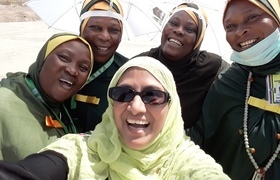Every minute, 20 people leave everything behind
29 June 2018 | Story Helen Swingler. Photos Refugee Clinic community service students. Read time 5 min.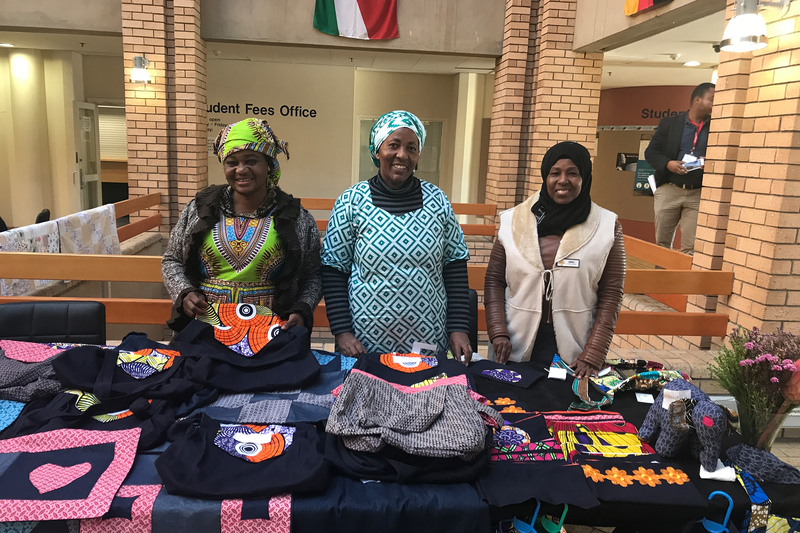
The law faculty’s Refugee Rights Clinic recognised World Refugee Day on 20 June with an immigration law book launch, a mini seminar and film festival, and a lunch for their clients. The events raised awareness of the plight of millions of refugees worldwide.
Supported by the United Nations High Commission for Refugees (UNHCR) and the Human Rights Commission (HRC), it was the faculty’s biggest event to highlight the day, recognising not only the clinic’s valuable work, but also the dignity and human rights of refugees and migrants everywhere, particularly in South Africa.
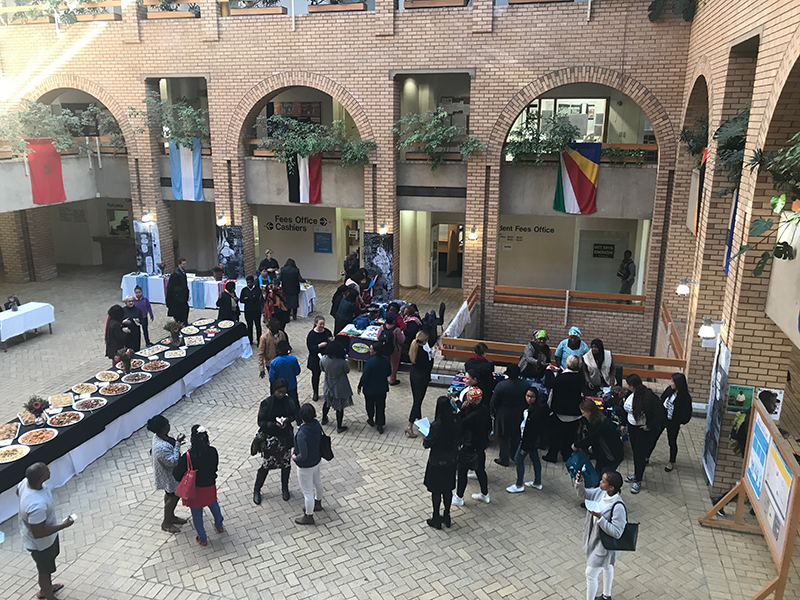
According to the United Nations, every minute of the day 20 people leave their livelihoods, homes and possessions behind to escape war, persecution or terror.
UCT’s Refugee Rights Clinic, in partnership with the UNHCR, sees some 5 000 refugees a year. They come mostly from the Democratic Republic of the Congo, Somalia, Ethiopia, Rwanda and Burundi, but also from Syria, Turkey, Pakistan, Iran and Palestine. The clinic’s director, Dr Fatima Khan, has been part of its operations since 2004.
First up on the day’s programme was the launch of Immigration Law in South Africa (Juta), which Khan edited and is the first of its kind in South Africa, according to Anna Truter, a candidate attorney at the clinic. It features contributions from a broad range of stakeholders, from practitioners and academics, to civil society.
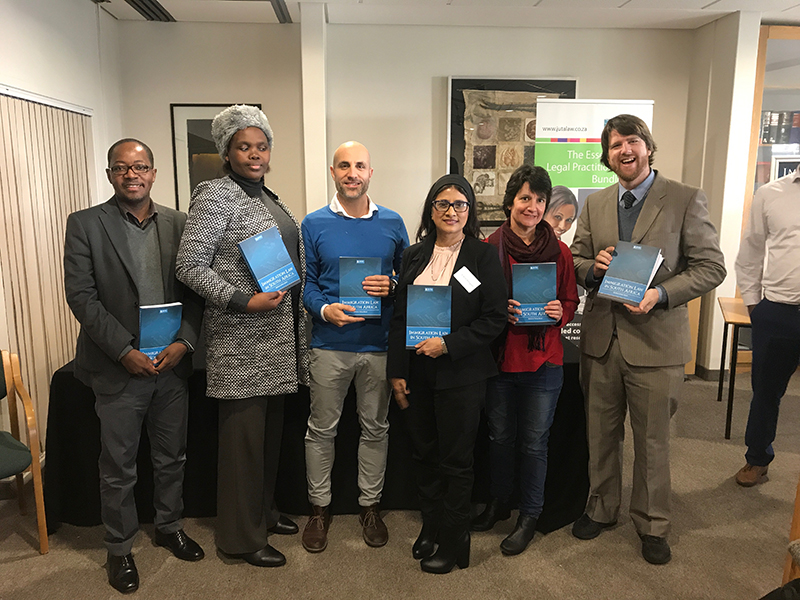
“We’ve never had such a comprehensive work of immigration law from a human rights perspective,” said colleague and law clinic attorney Megan Lee.
As part of the day’s programme, the faculty corralled many of the book’s contributors to reflect on its contents during a discussion hosted by Department of Public Law head Professor Danwood Chirwa.
For the seminar that followed, the organisers chose the theme “The Securitisation of Migration”. Based on a chapter from the book, the theme reflects the shift from borders being “welcoming” to migrants and refugees, to a more militant stance that now views them as “the other, the terrorist or the threat”, said Truter. This is apparent in the way the Trump administration has moved towards a securitised, defensive, “keep out” mode of dealing with migrants and refugees.
“That’s very much the global trend, and something that’s influencing international discussions around immigration … the language around migration is changing, which in South Africa also affects how refugees are accepted and treated.”
“…the language around migration is changing, which in South Africa also affects how refugees are accepted and treated.”
Lee added: “The welcoming, post-1994 ubuntu-based stance toward refugees and migrants has deteriorated over the years, with a strong shift towards negative attitudes.”
For example, local service delivery protests often became vehicles for victimising and attacking foreigners and their businesses.
Sharing under many flags
Lunch in the Kramer Quad – decorated with African national flags – was open to all the clinic’s clients, who also provided some creative input. The Burundian duo Peace and Love shared their songs, women from the Umoja Wamama Crafters Cooperative presented and sold their wares, and artwork was on display.
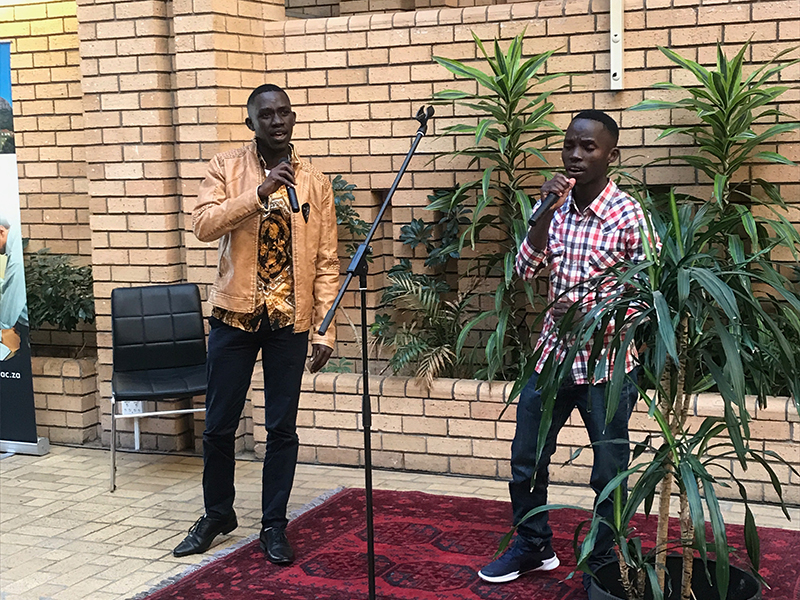
Capped by four short films, the programme achieved its target, said Truter, of conscientising the faculty to the presence of refugees – in society, and within the academic precinct in the Kramer Building, where the clinic is based.
“This was their day, recognising their strength, their bravery, and showing our support, encouragement and understanding of what it means to be a refugee,” she said.
 This work is licensed under a Creative Commons Attribution-NoDerivatives 4.0 International License.
This work is licensed under a Creative Commons Attribution-NoDerivatives 4.0 International License.
Please view the republishing articles page for more information.







